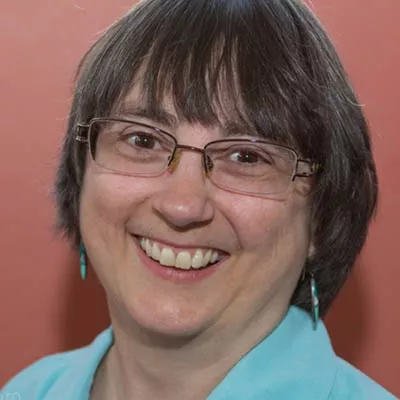
Elissa Scalise Powell, CG, CGL, a western Pennsylvania researcher for over 30 years, is the co-director of the Genealogical Research Institute of Pittsburgh (GRIP), and Genealogy as a Profession course coordinator at the Institute of Genealogy and Historical Research (IGHR). She was an instructor and module creator for Boston University’s Genealogical Research Certificate program (2008-2016). She was the mentor for ProGen Study’s first and 25th groups and author of two chapters in the 2018 Professional Genealogy: Preparation, Practice and Standards book. She was the course co-coordinator of the AG/CG Preparation Course at the 2010 and 2013 Salt Lake Institute of Genealogy (SLIG). She won the Association of Professional Genealogists 2017 Professional Achievement Award. She was honored in 2010 with the NGS President’s Citation in recognition of outstanding, continuing, or unusual contributions to the field of genealogy. She is a regional and national speaker on such topics as Pennsylvania records, methodology, professional development, and society management.
She was a Trustee for the Board for Certification of Genealogists for nine years, their President (2012-2014), and past Outreach Committee Chairperson for eleven years. She was a Director for the Association of Professional Genealogists for six years; taught genealogy courses at the local community college for fourteen years; co-edited a cemetery book series, appeared on the PBS-TV show Ancestors2 cemetery episode and on the Travel Channel’s Dead Files in the 2015 “The Instigator” and the 2019 “Devil’s Advocate” episodes. She is a past-President of two local Pittsburgh area societies and a contributing author to many publications including the NGS Quarterly and the APG Quarterly.
An NSDAR member, she is also a lifetime member of the Ohio Genealogical Society; the Medina County Chapter, OGS; and the Baltzer Meyer Historical Society (Greensburg, PA) which was named for her ancestor.










You should receive a confirmation email with a link to the webinar soon.
You’ll also receive a reminder both the day before and one hour before the webinar begins.
Didn’t receive a confirmation email?
You successfully registered for %s.
You should receive a confirmation email with a link to the webinar soon.
You’ll also receive a reminder both the day before and one hour before the webinar begins.
Didn’t receive a confirmation email?
To ensure a smooth, high-quality webinar experience, check the quality of your internet connection and make sure you have an updated version of Java.
On the day of the webinar, connect 30–40 minutes before and turn off any background software. If you can’t tune in live, you can view the recording later in the Webinar Library.
Questions? Contact us or read our FAQ.
It looks like you’re already registered for this webinar
You can register for another webinar.
Didn’t receive a confirmation email?
It looks like you’re already registered for these webinars
You can register for another webinar.
Didn’t receive a confirmation email?
Something happened on our end, sorry about that
We were unable to complete your registration.
Please try again later.